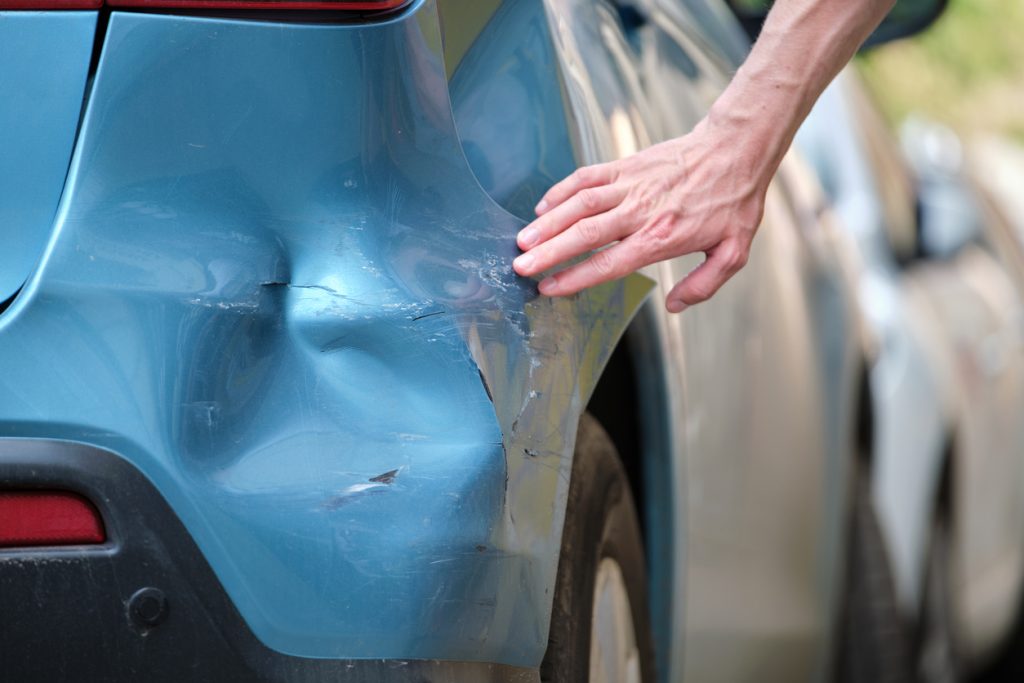Regardless of where you are in Florida, there’s always something to do. From fun at the beach to thrilling amusement parks to exploring swamps and relaxing with a fishing pool in hand, there’s always someplace you want to be. This can make waiting around after a traffic accident seem excruciating.
While you’re waiting for the authorities, you may be missing out on finally landing a catch worth talking about. However, there are potentially severe penalties for being involved in a hit-and-run. What are these penalties? We’re looking at this, along with a few reasons why it may be permissible for you to leave an accident scene before the authorities show up.
How Florida Defines a Hit-and-Run Accident
The definition of a hit-and-run accident doesn’t really vary whether the collision occurs in Florida or Texas. Occasionally known as leaving the scene of an accident, the Sunshine State defines it as a driver leaving the accident scene before checking for injuries, fatalities, and the extent of property damage.
While there are times when Florida drivers can skip immediately reporting an accident; this is something everyone involved must agree with. If one driver wants to wait for the authorities, everyone involved is required to hang around.
So, when are you legally required to immediately report a traffic accident? If property damage exceeds $500, injuries are present, or a fatality occurs, the accident must be immediately reported and all drivers must remain on the scene. If you decide to drive off, even after exchanging insurance information with the other driver, you may be facing a hit-and-run charge.
Potential Penalties for a Hit-and-Run Charge
A few factors go into determining the potential penalties for a hit-and-run charge. These can include whether it’s your first offence, the extent of property damage, and whether injuries or fatalities are present.
Drivers leaving the accident scene after causing property damage generally face a second-degree misdemeanour charge. Remember, you must stay at the accident scene if property damage exceeds $500. Since replacing a dented bumper can easily run higher, most Florida vehicle accidents must be immediately reported. Your potential penalties can include up to 60 days in jail and a $500 fine.
When a hit-and-run accident results in injuries, the severity of your potential penalties increases. The injury severity also determines whether you’re facing second or third-degree felony charges. Yes, you may be facing a felony charge if your accident causes injuries. You may be facing up to five years in prison and a $5,000 fine. Your driver’s license may also be suspended for up to three years.
Hit-and-run accidents involving fatalities typically result in a first-degree felony charge. Penalties can be harsh and may include fines of $10,000 and the potential of spending 30 years in prison. You’re also at risk of losing your driver’s license for three years.
Recoverable Damages in a Hit-and-Run Accident
Thanks to eyewitnesses and surveillance cameras just about everywhere, tracking down hit-and-run drivers is getting easier for law enforcement officials. Once the driver is identified, the state generally brings about hit-and-run charges. This case is tried in criminal court and has absolutely nothing to do with your claim for damages; it’s a lawsuit you file in civil court.
So, it doesn’t matter if the driver is found guilty or innocent. All you care about is learning the name and contact information. Now, you can serve the defendant with a letter of intent, which is usually one of the first steps in a lawsuit against a hit-and-run driver.
The document simply notifies the defendant of your intention to file a lawsuit against them to recover your damages. These are damages not covered by your insurance provider. Remember, Florida is a no-fault insurance state and this applies to hit-and-run accidents.
You can file a lawsuit against the other driver for damages not covered by your policy. Some of the damages commonly listed in hit-and-run lawsuits include the following.
Medical Expenses
A large part of most accident claims are medical expenses. Even a simple check-up after the accident isn’t cheap. If you suffer extensive injuries, covering your medical costs can quickly turn into a financial nightmare.
Thankfully, all Florida drivers are legally required to carry personal injury protection (PIP) insurance, which is where you turn immediately after the accident. All drivers, regardless of fault, file a claim with their PIP provider. Florida is a no-fault insurance state.
Unfortunately, PIP has limits and this can leave you with outstanding medical costs. PIP only covers your medical costs up to the policy’s caps or 80% of your total healthcare expenses. This usually leaves you with seemingly insurmountable bills. Your lawsuit can include your medical costs not covered by PIP.
Property Damage
Not all Florida drivers have full coverage auto insurance. Some only have the state’s minimum liability coverage. This means their insurance isn’t going to cover any property damage costs. Some full coverage policies also come with caps. You can sue the hit-and-run driver for your property damage costs.
However, if your insurance is covering these costs you can’t include them in your lawsuit. You can only claim damage once for the same accident.
Lost Income
Once again your PIP policy may cover most of your lost wages, up to 80%. You should be able to claim lost income if your injuries are preventing you from returning to work. If your injuries are forcing you to stop working permanently, your lawsuit may also include lost future earnings.
Your attorney can help you calculate the value of this damage. Sometimes it’s a little more complicated than adding up your pay stubs.
Non-Economic Damages
Non-economic damages aren’t covered by PIP or auto liability insurance. These are damages like your pain, suffering, and mental anguish. The only way to recover compensation for non-economic damages is to file a lawsuit in civil court.
Protecting Your Legal Rights After a Hit-and-Run Accident
Hopefully, you’re not the driver who left the scene of an accident. If so, you may be facing criminal charges, and this means you want to work with an attorney.
If you’re the victim of a hit-and-run driver, the same advice applies. To fully recover compensation, you’ll need to file a lawsuit and you don’t want to go to civil court alone.






















